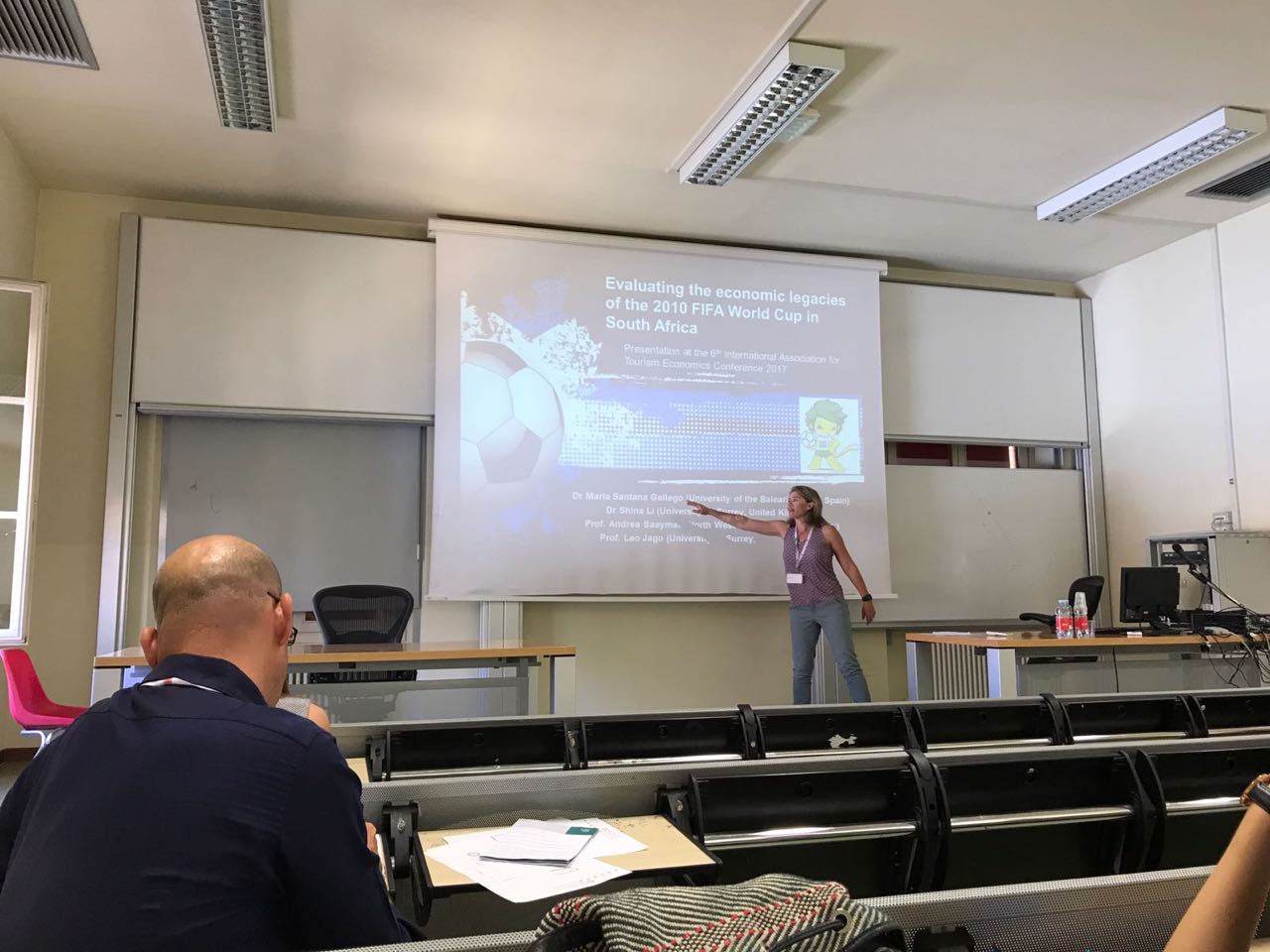News from the Project
Dr ShiNa Li visits North-West University
Dr. ShiNa Li from the University of Surrey in UK visited the School of Economics during the week of 29 May to 2 June. She is a co-worker on a project on Tourism and Poverty reduction, which is funded by the British Academy, together with Prof Andrea Saayman, Dr.Alicia Fourie, and Dr. Marco Scholtz. This is a 1-year project, which aims to investigate the influence that various aspects of tourism have on poverty.
During her visit, she presented some research results on the distributional effects of mega events. The case study presented investigates the effect of the Olympic Games, held in Beijing in 2008, on income distribution and opportunities to both urban and rural households in China. The exceptional circumstances in China, where the household registration system (hukou) distinguishes between a rural and urban person, hampers labour mobility. A person with a rural registration has access to poorer educational services and may not migrate to urban areas to search for work there. This has led to an increase in income disparity between urban and rural households in China.
A similar approach will be followed in the first small project that forms part of this research on tourism and poverty reduction in Africa.
The full reference of the paper is: Cao, Z., Li, S., Song, H. and Shen, S. (2016). The distributional effect of events on rural and urban households in China. Journal of Travel Research.

First results from the project are presented at the International Association for Tourism Economics (IATE) conference
The 6th conference of the International Association for Tourism Economics (IATE) were held in Rimini, Italy from 21-23 June 2017. During the conference, the first paper from the project was presented, titled: The economic legacies of the 2010 FIFA World Cup in South Africa. The co-workers on the paper were ShiNa Li, Andrea Saayman, Maria Santana-Gallego and Leo Jago.
This paper used a gravity approach to quantify the effect that hosting the FIFA World Cup had on tourism, FDI and trade in South Africa before, during and after the event. The results showed that the World Cup had an impact not only the year the event is hosted, but also the years before (anticipate) and the years after (legacy). The export legacies were larger during the planning period (2007 – 2009), while the FDI legacies were larger during the post-event period (2011-2015). Tourism increased the most during the year of the event (2010).

Follow the links below for more information.
1. Go back to the Title Page
2. The Team
3. The Project
4. Research-led teaching material
